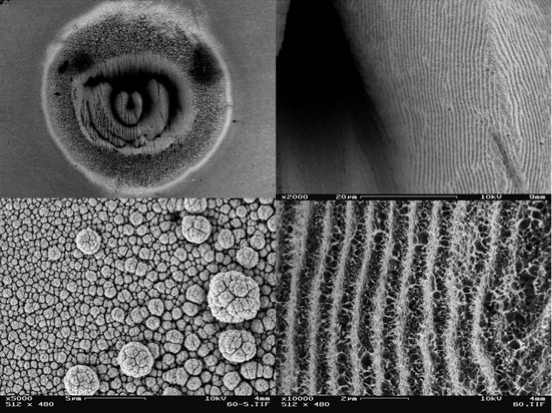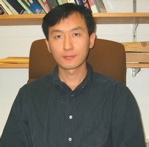Black gets more better
“Black gold” is not just an
expression anymore. Scientists at the University of Rochester have created a way
to change the properties of almost any metal to render it, literally,
black.

Femtosecond laser-solid interactions
“Black gold” is not just an expression anymore. Scientists at the University of Rochester have created a way to change the properties of almost any metal to render it, literally, black.
The process, using an incredibly intense burst of laser light, holds the promise of making everything from fuel cells to a space telescope’s detectors more efficient–not to mention turning your car into the blackest black around.
“We’ve been surprised by the number of possible applications for this,” says Chunlei Guo, assistant professor of optics at the University of Rochester. “We wanted to see what would happen to a metal’s properties under different laser conditions and we stumbled on this way to completely alter the reflective properties of metals.”
The key to creating black metal is an ultra-brief, ultra-intense beam of light called a femtosecond laser pulse. The laser burst lasts only a few quadrillionths of a second. To get a grasp of that kind of speed–a femtosecond is to a second what a second is to about 32 million years.
During its brief burst, Guo’s laser unleashes as much power as the entire grid of North America onto a spot the size of a needle point. That intense blast forces the surface of the metal to form nanostructures–pits, globules, and strands that both dramatically increase the area of the surface and capture radiation. Some larger structures also form in subsequent blasts.

Guo’s research team has tested the absorption capabilities for the black metal and confirmed that it can absorb virtually all the light that fall on it, making it pitch black.
As impressive as his work, Doctor Guo ain’t no slouch either. He graduated from undergraduate school in 1994 > Ph.D in 1999 > Post-Doc up with the coneheads at Los Alamos till 2001 > joined the University of Rochester Institute of Optics.
Phew! Dude doesn’t have time to collect stamps.
Posted: Fri - November 24, 2006 at 06:51 AM